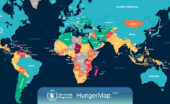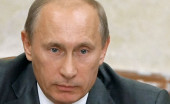Re Ian Bremmer 'Could third-party candidates upend the 2024 US election?' 3 April The current political movement in the USA…
Wednesday Night #1802
Written by Diana Thebaud Nicholson // September 14, 2016 // Wednesday Nights // Comments Off on Wednesday Night #1802
It is easy to draw a straight line from 9/11 to the rise of ISIS (by any name), turmoil in Iraq, Syria and generally throughout the Middle East. Coincidentally -or not- the ceasefire in Syria took effect on Monday and so far so good, according to the latest reports. But it is fragile.
The offensive on Mosul, the last bastion of IS in Iraq, is possibly days away [Is Mosul heading for a last ‘apocalyptic’ IS stand?]. Authorities in Baghdad say the liberation of Mosul will spell the end of IS on Iraqi soil. However, it will open the question of the future of Iraq as an entity, as the Kurds will be pressing for a referendum on Kurdistan.
As the UN General Assembly opens, a new voice popped up in the NYT on Tuesday; Iranian Foreign Minister Mohammad Javad Zarif published an op-ed piece Let Us Rid the World of Wahhabism. Quick summary: The Saudis have spent billions exporting this extremist perversion of theology. It must stop. The Foreign Minister then cites the initiative proposed in 2013 by Iran’s president, Hassan Rouhani, called World Against Violent Extremism, or WAVE and calls on the UN to “build on that framework to foster greater dialogue between religions and sects to counter this dangerous medieval fanaticism.” Reactions should be interesting.
It seems almost impossible that we have marked the 15th anniversary of 9/11. While other cultures identify significant events by date -and frequently adopt such dates as the name of a movements- those three numerals stand out in American culture as the only ones that evoke a time, place, event and emotions of the nation. Among the many 9/ll tributes, we call your attention to Fail Better, America, on this 9/11 Anniversary, by Roger Cohen, one of our favorite essayists.
In case you missed it, last week, the US Congress unanimously passed a bill allowing 9/11 victims’ families to sue the Saudi government.
Shockingly, but perhaps not surprisingly, the anniversary was almost overshadowed by the media frenzy over Hillary Clinton’s ‘collapse’ at the memorial in Manhattan and subsequent diagnosis of pneumonia. We are glad to see that some sensible commentators have reminded their audiences that past leaders have suffered from far more debilitating illnesses and accomplished great things. Others are suggesting that Mrs Clinton is suffering from more serious illnesses, including Parkinson’s, a claim that Snopes debunks.
Other campaign news and gossip is readily available, but we could not resist this sign-of-the-times headline House Republicans Dread a Possible Election Result: Bipartisanship. What a frightening thought! Apparently, some “dread sudden approval of the Trans-Pacific Partnership. They worry about a sweeping bill that would fully fund the federal government. Some even fret that Judge Merrick B. Garland could be confirmed to the Supreme Court. In short, they fear Congress functioning in a conventional, bipartisan way.” The article cites a number of examples of contentious legislation passed in lame-duck sessions.
The EU leaders are meeting on Friday to discuss the union’s fuuture. Not terribly rosy if one is to judge by the fractious relationships with some of its members, e.g., Exclude Hungary from EU, says Luxembourg’s Asselborn because of its “massive violation” of EU fundamental values. Hungary said Mr. Asselborn “could not be taken seriously”. Fighting words.
The deadline for submitting nominations for the job of president of the World Bank is today, and it looks likely that current president Jim Yong Kim will be re-appointed This puts an American in charge for a 12th consecutive term despite persistent calls for a selection process based on merit rather than geopolitical considerations.
David Jones and David Kilgour on the G20 (Epoch Times)
David Jones addresses The G20’s Display of Irrelevance
There were vague commitments such as to deliver more inclusive economic growth through coordinated macroeconomic policy, open trade, and innovation. In short, to “make globalization work for the benefit of all,” as summarized by one observer.
But its failure to address the proximate issues of the day was more telling: climate change/energy; a coordinated response to the Syria crisis; refugees and migration; terrorism; territorial and navigation challenges in the South China Sea. All went unremarked
David Kilgour: The G20 and World Lessons From Hangzhou
Citing Dan DiMicco’s book, “American Made,” David Kilgour also calls for “for American political and business leaders to focus on the real crisis they face: the 30 million jobs the United States needs to create by 2025 in part to close the trade and budget deficits. The other G20 members, including Canada, and many other countries should do likewise.”
In his unrelated piece for the Metropolitain David Jones argues that Canada should focus peacekeeping efforts on Haiti, making rehabilitating Haiti its national long-term objective for which the more traditional form of “peacekeeping” would be relevant and using Canadian Forces as the organizers and implementers. PEACEKEEPING? MAKE HAITI THE PRIORITY NOT AFRICA



